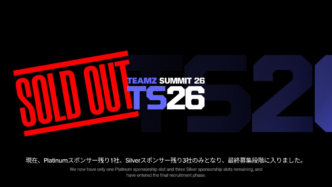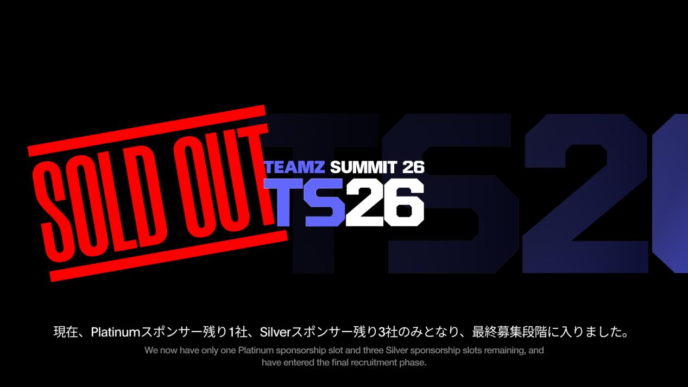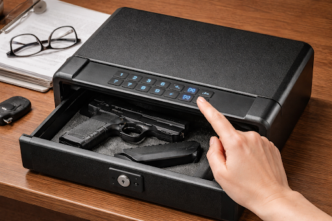So, you’ve got an Amazon phone interview coming up in 2025? That’s a big deal! Getting ready for this kind of interview can feel a bit much, but it’s totally doable. This guide is here to walk you through everything, from understanding what to expect to nailing those tricky questions. We’ll cover how to get ready, what to focus on, and even some simple steps to make sure you’re all set up for success.
Key Takeaways
- Know the Amazon phone interview process inside and out.
- Get familiar with Amazon’s culture and Leadership Principles.
- Practice answering questions using the STAR method.
- Brush up on your technical skills and coding practice.
- Set up your interview space and check your internet connection.
Understanding the Amazon Phone Interview Process
So, you’ve landed an Amazon phone interview? Congrats! It’s the first step in what can be a pretty involved process. Let’s break down what you can expect. It’s not just a casual chat; it’s a structured evaluation of your skills and fit for Amazon’s culture. Think of it as your chance to make a solid first impression and show them why you’re the right person for the job. Understanding the process is half the battle, so let’s get into it.
What to Expect During Your Amazon Phone Interview
Okay, so what actually happens during one of these things? Well, first off, expect a mix of behavioral and technical questions, depending on the role. The interviewer will be digging into your past experiences to see how you’ve handled different situations. They’ll likely focus on Amazon’s Leadership Principles, so be ready to talk about times you’ve demonstrated those. Also, don’t be surprised if they throw in a coding question or two, even if it’s not a strictly technical role. They want to see how you think and problem-solve. It’s a good idea to have your resume handy, along with a pen and paper for notes. And most importantly, be prepared to articulate why you want to work at Amazon and what you can bring to the table. Remember to show your passion for the role and the company.
Typical Duration of an Amazon Phone Interview
How long will you be on the phone? Generally, you can expect the interview to last between 45 to 60 minutes. It might feel like a long time, but it goes by quickly when you’re answering questions and trying to impress. The interviewer will likely use the first few minutes for introductions and to explain the interview format. The bulk of the time will be spent on questions, both from the interviewer and from you. Make sure you have some thoughtful questions prepared to ask at the end; it shows you’re engaged and interested. And don’t worry if you go slightly over or under the time; it’s not an exact science. Just focus on giving clear and concise answers. Knowing the interview duration helps you manage your time effectively during the call.
Key Components of an Amazon Phone Interview
There are a few key things that make up an Amazon phone interview. First, there’s the behavioral part, where they’ll ask you about past experiences using the STAR method (Situation, Task, Action, Result). Then, there’s the technical part, which could involve coding challenges or system design discussions. And finally, there’s the cultural fit aspect, where they’re trying to gauge whether you align with Amazon’s values and Leadership Principles. Here’s a quick breakdown:
- Behavioral Questions: Expect questions like "Tell me about a time you failed" or "Describe a situation where you had to deal with a difficult customer."
- Technical Questions: These will vary depending on the role, but could involve coding in a specific language or discussing system architecture.
- Leadership Principles: Be ready to explain how you’ve demonstrated principles like Customer Obsession, Ownership, and Bias for Action.
Knowing these components will help you prepare and structure your answers effectively. Remember, it’s not just about having the right answers; it’s about showing how you think and approach problems. Good luck!
Strategic Preparation for Your Amazon Phone Interview
Okay, so you’ve got an Amazon phone interview coming up? Awesome! Now it’s time to get serious about prepping. You can’t just wing it and hope for the best. Amazon wants to see that you’ve done your homework and that you’re genuinely interested in working there. Let’s break down how to really get ready.
Familiarizing Yourself with Amazon’s Unique Culture
Amazon isn’t like every other company. They have a very specific way of doing things, and it’s all centered around their Leadership Principles. Understanding these principles is absolutely key to acing your interview. You need to show that you not only know what they are, but that you also embody them in your work and your life. Read up on Amazon’s mission, values, and how they operate. It’ll give you a much better sense of what they’re looking for in a candidate.
Mastering Amazon’s Leadership Principles
Seriously, these principles are everything. Amazon interviewers will use them to evaluate your past experiences and predict your future performance. You need to be able to articulate how you’ve demonstrated each principle in your previous roles. Think of specific examples where you’ve shown customer obsession, ownership, bias for action, etc. Don’t just memorize the definitions; tell stories that bring them to life. For example, if you want to show you understand Amazon Interview Success System, you need to show how you’ve used it to prepare.
Here’s a quick rundown of some key principles to focus on:
- Customer Obsession: Go above and beyond for customers.
- Ownership: Take responsibility and deliver results.
- Bias for Action: Don’t be afraid to take calculated risks.
- Invent and Simplify: Always look for ways to innovate.
- Are Right, A Lot: Have strong judgment and good instincts.
Crafting Compelling Behavioral Responses
Behavioral questions are a huge part of the Amazon interview process. They want to know how you’ve handled situations in the past to get an idea of how you’ll handle them in the future. The best way to answer these questions is by using the STAR method (Situation, Task, Action, Result). This helps you structure your answers in a clear and concise way, making it easier for the interviewer to follow along. Think about past projects, challenges, and successes, and prepare stories that highlight your skills and accomplishments. Be ready to talk about failures too, and what you learned from them. Be honest, be specific, and be yourself.
Essential Resources for Amazon Phone Interview Success
Okay, so you’re gearing up for that Amazon phone interview. Good move thinking about resources! You don’t want to go in unprepared. Let’s talk about some things that can really help you shine.
Recommended Books for Interview Preparation
Don’t underestimate the power of a good book. There are a few books that are basically interview prep bibles. I’m not talking about generic interview advice; I mean books specifically tailored to Amazon’s interview process. Look for titles that break down the Leadership Principles and offer sample questions. Some books even have insider tips from former Amazon employees. It’s like having a cheat sheet, but you still have to do the work to understand it!
Online Platforms for Practice Problems
These days, there are tons of websites that can help you practice, especially if you’re going for a technical role. Think about it like this:
- Coding Platforms: Sites like LeetCode and HackerRank are great for brushing up on your coding skills. They have tons of problems that are similar to what you might see in an interview. Plus, you can practice in different languages.
- Behavioral Question Simulators: Some platforms focus specifically on behavioral questions. They’ll give you a question and then let you record your answer. It’s a good way to get comfortable talking about your experiences. You can even get feedback on your answers.
- Company-Specific Prep: Some sites specialize in interview prep for specific companies, including Amazon. These often have the most relevant and up-to-date information. For example, you can find an Amazon Interview Success System online.
Utilizing Mock Interviews Effectively
Mock interviews are super important. It’s one thing to know the STAR method, but it’s another thing to actually use it under pressure. Here’s how to make the most of them:
- Find a Good Mock Interviewer: Ideally, you want someone who has experience interviewing people, especially for technical roles. A friend or family member might not cut it unless they have relevant experience. Consider a career coach or someone in your network who works in tech.
- Simulate the Real Thing: Try to make the mock interview as realistic as possible. That means setting up your environment, dressing professionally, and using the same tools you’ll use in the real interview. Even the top US business phone services in 2021 can be used to simulate the phone call.
- Get Detailed Feedback: Don’t just ask if you did well. Ask for specific feedback on your answers, your communication style, and your overall performance. What could you have done better? What were your strengths? Really dig into the details.
- Record Yourself: If possible, record your mock interviews. It can be painful to watch yourself, but it’s a great way to identify areas for improvement. You might notice things you didn’t realize you were doing, like saying
Acing the Behavioral Questions in Your Amazon Phone Interview
Amazon puts a huge emphasis on behavioral questions. They want to know how you’ve acted in past situations because that’s the best predictor of future behavior. It’s not just about what you can do, but what you will do. So, let’s break down how to nail these questions.
Applying the STAR Method for Structured Answers
The STAR method is your best friend here. It stands for Situation, Task, Action, and Result. Using this framework helps you provide clear, concise, and compelling answers.
- Situation: Briefly describe the context. Where were you? What was happening?
- Task: What was your specific role or objective in that situation?
- Action: What specific steps did you take to address the situation? This is where you really shine. Don’t just say you "worked hard"; explain how you worked hard.
- Result: What was the outcome? Quantify it if possible. What did you learn? How did it impact the team or company?
For example, instead of saying "I improved customer satisfaction," say "I implemented a new feedback system that reduced customer complaints by 15% in Q3."
Showcasing Customer Obsession and Ownership
Amazon is all about the customer. So, your answers need to reflect that. Think about times you went above and beyond for a customer, anticipated their needs, or advocated for them. Also, they value ownership. Did you take initiative? Did you see something that needed fixing and just do it? These are the kinds of stories Amazon wants to hear. Think about how AI enhances customer experience and how you can contribute to that.
- Think of examples where you prioritized customer needs over other considerations.
- Prepare stories where you took full responsibility for a project or task, even when things went wrong.
- Be ready to explain how you measure customer satisfaction and use feedback to improve processes.
Demonstrating Problem-Solving Skills
Problem-solving is key at Amazon. They want to see how you approach challenges, analyze data, and come up with solutions. Don’t just talk about the problem; focus on your process. Did you break the problem down into smaller parts? Did you consider different options? Did you involve others in the solution? Show them how you think.
- Have examples ready where you faced a complex problem and successfully resolved it.
- Be prepared to discuss your analytical skills and how you use data to make decisions.
- Practice explaining your problem-solving process step-by-step, highlighting your critical thinking skills.
Technical Readiness for Your Amazon Phone Interview
Technical interviews at Amazon can be intense. You need to show you know your stuff, and that you can apply it to real-world problems. Don’t just memorize facts; understand the underlying concepts.
Reviewing Core Technical Concepts
Make sure you’re solid on the basics. This includes data structures (arrays, linked lists, trees, graphs), algorithms (sorting, searching), and common design patterns. Brush up on your knowledge of operating systems, networking, and databases. It’s easy to get rusty, so a quick refresher is always a good idea. Think about how these concepts apply to large-scale systems. For example, how would you design a system that handles millions of requests per second? What data structures would you use, and why?
Practicing Coding Challenges
Coding challenges are a big part of the technical interview. You’ll likely be asked to write code in real-time, so practice is key. Use platforms like LeetCode and HackerRank to solve problems of varying difficulty. Focus on writing clean, efficient, and well-documented code. Pay attention to time and space complexity. When you’re done, back up your iPhone to ensure your progress is saved. Here’s a simple plan:
- Solve at least 2-3 coding problems every day.
- Focus on different data structures and algorithms each week.
- Simulate interview conditions by timing yourself.
Discussing System Design Principles
For more senior roles, you’ll probably face system design questions. These questions assess your ability to design scalable, reliable, and maintainable systems. Be prepared to discuss topics like caching, load balancing, databases, and microservices. Think about trade-offs and justify your design choices. Consider these points:
- Scalability: How will your system handle increased traffic?
- Reliability: How will you ensure your system is fault-tolerant?
- Maintainability: How will you make your system easy to update and debug?
Logistical Considerations for Your Amazon Phone Interview
Setting Up Your Interview Environment
Okay, so you’ve landed an Amazon phone interview – awesome! Now, let’s talk about setting the stage, literally. Your environment matters more than you think. You want to minimize distractions. Think of it like this: you’re creating a mini-studio for your big moment. Find a quiet room where you won’t be interrupted by family, roommates, or pets. Trust me, a barking dog or a surprise visit from your little brother can throw you off your game.
- Clear your desk of clutter. A clean workspace equals a clear mind.
- Make sure the lighting is good. You might not be on video, but good lighting helps you feel more alert and professional.
- Have a glass of water nearby. Talking for 30-60 minutes can make your throat dry.
Ensuring Reliable Connectivity
Nothing is worse than your internet cutting out mid-sentence, especially when you’re trying to impress a recruiter. Before the interview, test your internet connection. Run a speed test to make sure you have adequate bandwidth. If you’re using Wi-Fi, try moving closer to the router. If possible, consider using a wired connection for maximum stability. Let’s avoid any tech-related hiccups during your Amazon interviews.
- Close any unnecessary applications or browser tabs that might be hogging bandwidth.
- Ask others in your household to limit their internet usage during your interview.
- Have a backup plan in case your primary connection fails. This could be a mobile hotspot or a nearby coffee shop with reliable Wi-Fi.
Preparing Your Questions for the Interviewer
This is your chance to show you’re genuinely interested in the role and the company. Don’t just ask questions for the sake of asking; prepare thoughtful, insightful questions that demonstrate your understanding of Amazon’s business and culture. It’s a great way to show off your technology selling skills.
Here are some ideas:
- What are the biggest challenges facing the team right now?
- How does this role contribute to Amazon’s overall goals?
- What opportunities are there for professional development within the company?
Post-Interview Strategies for Your Amazon Phone Interview
Sending a Thoughtful Thank You Note
Okay, so you’ve just finished your Amazon phone interview. What’s next? Don’t just sit around waiting! A simple, yet effective, move is to send a thank you note. This shows you’re polite and genuinely interested in the position. It doesn’t need to be super long or complicated. A brief email to your interviewer within 24 hours is perfect. Mention something specific you discussed to show you were paying attention. It’s a small thing that can make a big difference. You can also use this opportunity to reiterate your interest in the role and highlight a key skill or experience that aligns with the job requirements. Make sure to proofread it before sending! It’s a good idea to keep a template handy so you can quickly personalize it after each interview. This is a great way to show your cultural aptitude.
Reflecting on Your Performance
Alright, time for some honest self-assessment. After the interview, take some time to really think about how it went. What questions did you nail? Which ones tripped you up? Where could you have given better, more detailed answers? Write it all down. This isn’t about beating yourself up; it’s about learning and improving. Think about your STAR method examples – were they strong enough? Did you clearly demonstrate Amazon’s Leadership Principles? This reflection will be super helpful for future interviews, whether it’s with Amazon or another company. Consider these points:
- What went well?
- What could be improved?
- What specific examples could be stronger?
- Did you effectively communicate your skills and experience?
Understanding Next Steps in the Hiring Process
So, you’ve sent your thank you note and reflected on your performance. Now what? It’s time to understand what to expect next. The timeline can vary, but usually, you’ll hear back from Amazon within one to two weeks. If you don’t, it’s perfectly acceptable to send a polite follow-up email to check on the status of your application. The next step might be an on-site interview (virtual or in-person), or it could be a rejection. Don’t get discouraged if you don’t get the job! The interview process is tough, and there are many qualified candidates. Use the experience to learn and grow, and keep applying. Make sure you understand the Amazon interviews process. Here’s a possible timeline:
| Stage | Timeframe |
|---|---|
| Phone Interview | Completed |
| Feedback from HR | 1-2 weeks |
| On-site Interview | 2-4 weeks (if applicable) |
| Final Decision | 1-2 weeks after on-site |
Wrapping Things Up
So, there you have it. Getting ready for your Amazon phone interview might seem like a lot, but it’s totally doable. Just remember to really get what Amazon is about, practice your answers, and be ready to show off what makes you a good fit. It’s not just about what you know, but how you show it. Good luck, you’ve got this!
Frequently Asked Questions
What is the Amazon phone interview?
The Amazon phone interview is usually the first step in getting hired. You’ll talk to an Amazon interviewer over the phone. They’ll ask about your past jobs and what you’re good at. It usually lasts between 30 to 60 minutes.
What should I have ready for the interview?
You should have your resume ready, along with a pen and paper for notes. Make sure your phone has a good signal if you’re using it. Also, have a list of questions you want to ask them.
What kind of people does Amazon look for?
Amazon really cares about its customers. They also want people who are always trying to do better. You need to show that you love your work and that you always put the customer first.
What is the STAR method?
The STAR method helps you tell a story about your experiences. STAR stands for Situation, Task, Action, and Result. You use it to explain a problem you faced, what you needed to do, what you actually did, and what happened because of your actions.
What are Amazon’s Leadership Principles?
Amazon has 16 main ideas that guide how they work, called Leadership Principles. Things like ‘Customer Obsession’ and ‘Ownership’ are examples. You should know these well and be ready to show how you’ve used them in your past jobs.
Should I send a thank-you note after the interview?
Yes, it’s a good idea to send a thank-you note. It shows you’re polite and still interested in the job. You can also use it to add anything you forgot to mention during the interview.














